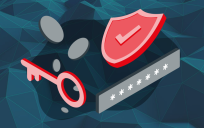School teachers are trusted to draw up lesson plans, give lectures, assign homework, talk to parents and hand out grades… but in the state of Missouri, they’re no longer authorized to communicate with students via non-public social media.
A new law in Missouri places restrictions on the amount of contact teachers and students can have online, particularly as it deals with private messages and interaction. The law pertains to public school teachers and personnel only.
…
If the teacher sends the student a message privately on the system, or replies to a private note from a student — even if the inquiry is a practical one asking about a homework assignment or topic being discussed in class — that educator would be breaking the law if that message can’t be seen by everyone.
Social Media Between Students and Teachers Restricted in Missouri
Officials says research shows electronic media can be a “pathway to inappropriate behavior.” On a few occasions, teachers and students have been found to have entered into unprofessional, even sexual, relationships with the help of text messages and other social media. The measure is intended to prevent such cases from occurring by mandating that communications be made in the open.
But opponents of the law argue it will create a “chilling effect,” dissuading teachers from finding innovative, educational uses for social media in the classroom. It also creates an additional roadblock for students seeking out guidance from their teachers. After all, a child who is struggling at school may be reluctant to say so on a public forum but willing to reach out in a closed-door setting.
As a government employee, what do you think?
Should public school teachers be allowed to communicate with students via non-public social media?
*****************************************************************************************************************
“GovBytes” is a blog series created by GovLoop in partnership with Government Technology. If you see great a story on Gov Tech and want to ask a question around it, please send it to thedoctor@govloop.com.




As it is written (“non-public”), I would have to say no. BUT, if the school were to develop their own website & friend system, I would be more receptive.
OK, so what is email? In my definition it is a private communication tool between two or more individuals… by definition a no-go any longer? Inappropriate behavior is not any more facilitated by social media than any other perfectly legitimate avenue. I think this is a significant issue of privacy for the kids and I do believe they have the right to a certain level of those rights too. Why punish a significant portion of teachers and students doing the right thing for the right reasons for a few stupid incidents? Telephone, text, email, paper notes, a private conference… aren’t these all non-public forms of social media…really. Just because there is a new technology in place that an educator can use to reach the kids and speak their own language doesn’t mean that method is any more or less inherently evil…it is just new and different and just as easy to abuse as the kid in my 11th grade class who sent the teacher inappropriate paper notes (and got ones back). Same problem, no solution in THAT solution.
I was actually also wondering about email, and I’m not sure whether that counts as a non-public use of social media. I hope not.
I don’t think that email is defined as private. But, it is a communication betwen two or more individuals.
What would you define of email as public? How public is your email? Do you expect it to be between you and the person you send it to? Of course we all know that it doesn’t have to stay that way, the same way a hand written note can be passed to someone else. Email is exactly as private as a FaceBook message, a phone text message, or any of the other things we’re talking about. The behavior is the problem, not the tools. It’s like blaming a robbery on the brand of tennis shoes the thief is wearing… A logical fallacy of the first order with no correlative points.
@Faye, I like your analogy about the thief and agree with you.
OK, reading more about it perhaps the real sticking point for the school system is that THEY have control over the email system the teacher is using (IF they are using the school’s) and if you are logged into a school’s system the IT folks can see what you do (like everyone in the Fed sphere knows when we log in every morning with that blaring list of how we can’t expect any privacy on the system)… if a student and teacher are using external medias for communication, the school can’t have control or evidence. Perhaps this is the distinction they are trying to make. They have a vague argument there… but what about a teacher who is using a gmail account to reply to student’s questions? The school doesn’t have control over a hand written note, etc. I think they are reaching too far and missing the bigger issue of how to really prevent and identify abuse early (instead of CYA efforts that this seems to really be).
The stories I’ve read about this have done a pretty lousy job of explaining the law and the rationale for it.
This is an important Digital Era issue that needs to be carefully considered and handled responsibly, but people can’t engage in healthy debate of the issues unless they’re well informed. I always find it helpful to go to the original sources rather than relying on second-hand information/interpretations. The link below includes the pdf of the final version of the bill that was signed into law. Although many reports give the impression that the restrictions on digital communications between teachers and students is a primary crux of the law, it is a relatively small but critical component.
http://e-lobbyist.com/gaits/MO/SB54
There are many valid reasons for prohibiting teachers and students from interacting with each other on social networking sites like Facebook – reasons that go well beyond the issues covered in this law. The prohibitions (which in my view should be addressed by policy, not by law) should extend to other staff as well and should include friending coworkers and parents too. Simply put, the risks of crossing personal/professional boundaries far exceed the potential benefits.
A couple of commenters have alluded to a viable alternative that organizations of all types – especially those that include minor children – can pursue: the establishment of private social networks that allow for many of the benefits of a site like Facebook while minimizing the risks. I hope and predict this will be a growing trend.
Here’s the relevant text from the law. The key word to me seems to be “exclusive,” which is defined to be *only* between the student and the teacher (for example). If the communication is accessible by a parent, guardian, and/or administrator, it’s permissible. In my view, that’s far less restrictive than the general interpretations that are being bandied about, and generally reasonable.
162.069. 1. Every school district shall, by January 1, 2012,2 promulgate a written policy concerning teacher-student communicationSCS SB 54 153 and employee-student communication. Such policy shall contain at4 least the following elements:
(1) Appropriate oral and nonverbal personal communication, which may be combined with or included in any policy on sexual harassment; and
(2) Appropriate use of electronic media such as text messaging and internet sites for both instructional and personal purposes, with an element concerning use of social networking sites no less stringent than the provisions of subsections 2, 3, and 4 of this section.
2. As used in this section, the following terms shall mean:
(1) “Exclusive access”, the information on the website is available only to the owner (teacher) and user (student) by mutual explicit consent and where third parties have no access to the information on the website absent an explicit consent agreement with the owner (teacher);
(2) “Former student”, any person who was at one time a student at the school at which the teacher is employed and who is eighteen years of age or less and who has not graduated;
(3) “Nonwork-related internet site”, any internet website or web page used by a teacher primarily for personal purposes and not for educational purposes;
(4) “Work-related internet site”, any internet website or web pages used by a teacher for educational purposes.
3. No teacher shall establish, maintain, or use a work-related internet site unless such site is available to school administrators and the child’s legal custodian, physical custodian, or legal guardian.
4. No teacher shall establish, maintain, or use a nonwork-related internet site which allows exclusive access with a current or former student. Nothing in this subsection shall be construed as prohibiting a teacher from establishing a nonwork related internet site, provided the site is used in accordance with this section.
5. Every school district shall, by July 1, 2012, include in its teacher and employee training, a component that provides up-to-date and reliable information on identifying signs of sexual abuse in children and danger signals of potentially abusive relationships between children and adults. The training shall emphasize the importance of mandatory reporting of abuse under section 210.11540 including the obligation of mandated reporters to report suspected abuse by other mandated reporters, and how to establish an SCS SB 54 16 atmosphere of trust so that students feel their school has concerned adults with whom they feel comfortable discussing matters related to abuse.
Current in-school systems of communication are almost entirely “exclusive” — such as school email. Can the school get access to this email and provide it to the parents… sure, but as I’ve been saying, the crux of the matter is not the tools it is the behaviour. Changing the behaviour is key. Creating an air of “1985” just isn’t helpful. As my example below noted, a paper note is just as exclusive and problematic in the wrong hands as any online tool.
Faye – In-school communication systems, including email, do not meet the law’s definition of exclusive. And it seems to me that the law generally does focus on behavior, not just the means of communication. I suspect digital communications are highlighted because they’re relatively new, and – more importantly – because they can escalate and intensify much more quickly than other means.
Because much of the coverage of this issue has been incomplete and/or inaccurate, leading to significant misunderstanding and misplaced anger, I’ve written a post that offers a broader perspective on the law and the potential benefits of restricting interactions between adults and minor children in cyberspace. This piece also provides an alternative that enables individuals and organizations to reap the benefits of digital interactions while better managing the risks. It’s entitled “Can We be Friends? In Cyberspace, ‘No’ May be the Right Answer” and can be accessed via http://tiny.cc/Friends-PDNs.